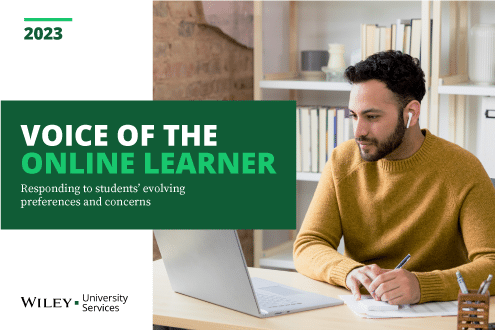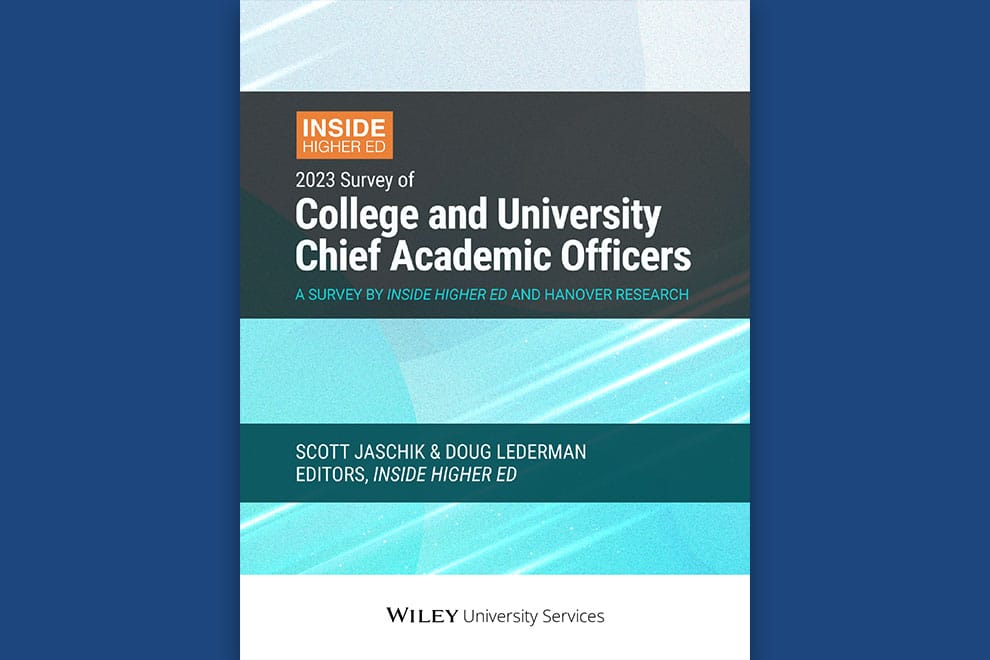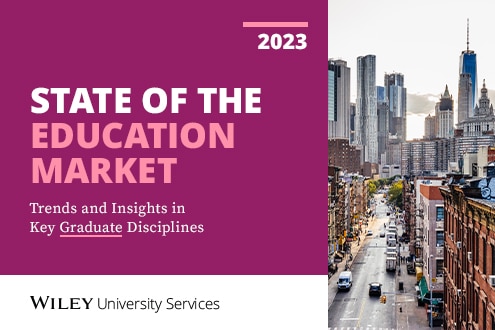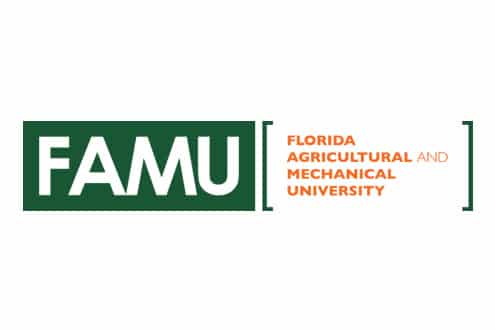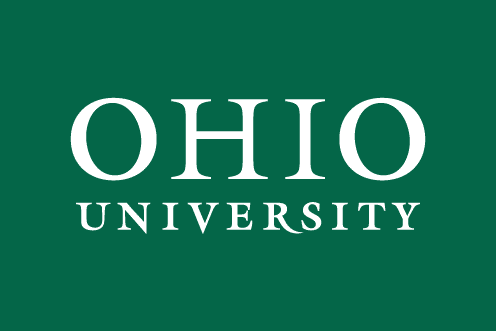Speaker 1:
You’re listening to An Educated Guest, a podcast that brings together great minds and higher ed to delve deeper into the innovations and trends guiding the future of education and careers hosted by the president of Wiley Education Services, Todd Zipper.
Todd Zipper:
Hello, this is Todd Zipper, the host of An Educated Guest. On today’s show, I speak with Michael Sorell, president of Paul Quinn College. Under his leadership, Paul Quinn has become a national movement for its efforts to remake higher education in order to serve the needs of under-resourced students and communities. Michael is one of the most decorated college presidents in the US. He has been named Higher Education’s President of the Year by Education Dive, and one of the world’s 50 greatest leaders by Fortune Magazine.
The key takeaways from our discussion today: first, why we need to be advocates for students, especially those in underserved communities. Two, how Paul Quinn College set out to solve the problems no one was discussing and succeeding. Third, why we should take an open-minded and no fear of failure approach to drive innovation. Fourth, innovations that Paul Quinn has implemented, including a dress code, a community garden, and a work college model. Fifth, how student debt dropped from $40,000 to under $12,000, and finally, how to build a brand through strategic partnerships. Michael, welcome to the show.
Michael Sorrell:
Thank you. It’s a pleasure to be here.
Todd Zipper:
So let’s jump in. Before you came to Paul Quinn College, you did not have a lot of experience in higher ed. So, why don’t you tell us about how you got into higher ed and how you obtained the leadership role you currently have with Paul Quinn?
Michael Sorrell:
My experience with higher ed is that I have a bunch of degrees from higher ed institutions. And, I had a vision of what higher ed should be. In full disclosure, higher ed worked for me, right? I’m one of those people, I came from a very upper middle class, affluent family. I went to a great prep school for high school. I was always going to be okay. But, I recognized that I was very, very fortunate and I’ve always been someone who believes that educational institution should do more than just give people degrees, that they should wade into their lives and create pathways for communities of people who may never attend your school to also get the benefits of your institution being in those places. And, I was fortunate in that when I moved to Dallas, I met a group of people who went to Paul Quinn.
And I met them playing basketball. I had been a college basketball player. They had been college basketball players and we developed a friendship, and they were the nicest people that one could meet. I mean, just good, good people. And, they made a stranger feel welcome in a strange land. I couldn’t make peace with the fact that people thought poorly of their institution, but they were wonderful people. And so, I engaged with the school. I gave money to the school. I would come speak. I was a visiting professor one time. And when the last long term president decided they were going to leave, I thought, “Hey, I should be president,” which was a pretty ridiculous thought. Let’s just be very, very clear. There was nothing about me that said, “Oh yeah, absolutely. You should be a college president.”
I did not have a PhD. I hadn’t worked in higher ed. I hadn’t done any of that. I just felt that I could do this, and the school completely understandably told me no, but gave me an opportunity to serve on the board. And, I was a really unhappy board member because I think you should be advocates for students. I think you should really, really push and I didn’t feel as if that was being done. I sat on the board for a few years and was going to get off of the board because I was part of a group that was negotiating to buy an NBA franchise. And if we had been successful, I would’ve been president of the franchise.
And so, I was getting ready for the Range Rover period in my life, and I got a call one day when I was driving to go scout Kevin Durant and the new chair of the board offered me the job. I told him I’d take it for 90 days, and that’s been almost 15 years. So what we can conclude is that I am an absolutely terrible interim college president.
Todd Zipper:
So when you became president, you inherited a 1% grad rate and a campus full of abandoned buildings. The school’s essentially near bankruptcy from what I can understand with huge deficits, as high as a million dollars. And by month three, accreditation status was placed on probation. Within two years, it had also lost 400 students.
So what did you do to not only survive, but ultimately thrive? And before you answer that question, one of the things in just visiting your website that really resonated, so I’d love for you to start here is to talk about the mission and values of Paul Quinn, which clearly resonated with you. And, I think maybe you’ve also helped to create those over the last 14 years, but the Four L’S really feels like something special.
Michael Sorrell:
Well, the reality is that those didn’t exist before I got here. When I got here, the miracle was that we produced roses that grew from the concrete. It wasn’t a large number. We made it way too hard. Roses should not have to grow from the concrete. And, we were an institution that had lost its way, and there are lots of reasons for places losing their way. I don’t think anyone wants to fail. I don’t think anyone wants to create an environment where they say, “Oh, we’re going to lose 99% of our new students.” But, you cut corners. You lose hope. You become bogged down in the difficulty of it all. Or, maybe your best just isn’t good enough at that moment. And, I understand that. All of us have moments where our skillset, our temperament is right.
And sometimes, the key is recognizing when your skillset meets your moment. And for me, I was just too naive to know that what we were going to do should have been impossible. It should have never worked. All right? It really shouldn’t. The Boston Consulting Group did this amazing project. They gave us a great blueprint, but none of this should have worked. We were too far in the hole. And when people ask me, “Why did it work?” It’s like, “Because of God.” This wasn’t because I’m some higher ed genius. I am appreciative that what I had to offer made sense for this institution at this moment in time. I am resilient. I do not give up. I do not believe … Let me put it differently. I believe in the inevitability of my own success.
That if I work hard, if I stay committed, if I am someone who has the right reasons for doing something that we can succeed. And so, I looked around and I said, “All right, we need a goal.” And our goal was we’re going to be one of America’s great small colleges. Period. And that was intentional because you don’t really know off the top of one’s head, well, who are, America’s great small colleges? We know who America’s great liberal arts colleges are. I went to one of those, but I also knew that those colleges had long histories, those colleges had deep, deep, well funded endowments. Those colleges graduated 95%, 99% of their students. They didn’t have accreditation issues. They looked different. But no one really knew what a great small college was, so it gave us a lane because it gave us the ability to articulate it.
I had a great professor in college, Paul Dawson, who told us that as long as you’re playing the game on someone else’s field, you put yourself at a disadvantage. So we decided we were going to play it on our own field. And then we looked for things that resonated. If we were going to build a school to speak to this era of American society, what should it look like? Well, it should speak to the needs of the day. It should address the issues that are prevalent in people’s lives. It should solve problems. And, that’s what we set out to do, to solve the problems no one else wanted to solve, to solve the problems no one else showed the aptitude to solve. And then, it was about values. You need something to rally people to your cause.
Now let me be very candid. I grew up in Chicago. I’m a big city man. I think some of this stuff is corny. When you grow up in a big city, you have that big city skepticism, but I also am Jesuit educated. I went to a Jesuit prep school … shout out to St. Ignatius College Prep in Chicago. I grew up with a family that taught me these values and this understanding that to whom much is given, much is expected, and that I had been given a lot. And that my mother and my grandmother’s expectations for me was that I would grow up to be a leader, a great influence in this society. My grandfather taught me strength. My father taught me cunning and entrepreneurial thought and action. So I was very, very blessed to grow up in this environment that was committed to my success, but in doing so, communicated it through values, and those values are part of what we got to here at Paul Quinn.
I mean, we over me is really just a cooler way of expressing the Jesuit principles of being men and women for others. The Four L’S of Quinnite Leadership? That was just a cooler way of taking my personal values of saying my parents told me that I needed to leave places better than I found them. In other words, clean up your room. That was a constant message. When I was 13 years old and a freshman in high school, I took a world history class, and in that world history class, they talked about being Renaissance men and women, men and women whose deeds lived on beyond their time. And I thought, “Oh, it would be amazing to be a Renaissance man and woman.” So at 13 I decided I would be a Renaissance man. Well, a Renaissance man is really living a life that matters.
So that’s the second L. I’m really impatient and I’m irreverent, and I believe in production over protocol. So I’m not a guy you need to talk to about waiting my turn. I’m not here to wait my turn. That is lead from wherever you are. And then, I believe in selflessness. I believe that leaders should be people who care about things bigger than themselves. Love something greater than yourself. And so the first time I shared those things at a chapel, I wasn’t sure how they were going to be received. I was really pleasantly surprised when one of our staff members who’s still here, our librarian Mrs. Weeks, came up to me and said, “Those are amazing. We need to use those.” And I was like, “You think?” And she said, “Absolutely.”
And, that’s where it began and they resonated with people and I’m awfully glad that they did.
Todd Zipper:
That’s an amazing story. So I want to hit on that irreverent comment because I know one of the first things you did was get rid of the dress code. Is there something symbolic in that? Talk to us here.
Michael Sorrell:
Sure, sure. So I am a person that thinks in layers, and whatever I’m doing right now, there’s something else going on. I’m looking down the road and preparing for a journey. So, we didn’t look good as an institution. We had 15 abandoned buildings. The whole front of our campus were abandoned buildings. Our students didn’t present themselves in a way that happened to be attractive to our donors. And, I get the whole argument about respectability politics, but listen, there are rules to this game and I told the students, I said, “People can like me. They can think that I tell a good story. They can think that I’m even charming, but whether or not they invest in what I’m selling is whether or not they believe in you, whether or not you are a good investment. Part of whether or not people determine whether you’re a good investment is how you present yourself.”
So I bring people to campus and we don’t look that great. We don’t look investment worthy. And this wasn’t even my idea. This was some of my staff members who said, “We should have a dress code.” I started thinking about how I was having a hard time fundraising. I was like, “You know what? Okay, let’s do it.” And what it led to, though, was a youth clothing drive, a gently used clothing drive. And the reason that was important was because when I started, we had an audit that had something 30 findings. I don’t know how much you know about audits, but audits are supposed to confirm that the money is going where the money’s supposed to go. If you have 30 findings of non-compliance, the money’s not really going where it’s supposed to go. So, people didn’t really trust us.
And, I didn’t have a lot of time to build up that trust. So I needed a Trojan horse, the used clothing drive and the dress code became the Trojan horse because what it allowed me to do … there weren’t colleges that had dress codes, so everyone talked about it. We were on NPR. We started getting donations of clothes from Europe. Black churches loved it. It turns out the only people who hated the way the students looked more than my staff were the people in black churches. So we would go and talk about the college and what we were doing, and it was Amen corner. I’m talking about people were, “Hey, we are here. We are for this. We will donate clothing.” Well, if you donated clothing, we captured your of data, right? We had to send you thank you notes. You became a donor. So now, we go from institution with no real donor base to a bunch of new donors who were excited. Voila.
Todd Zipper:
Yeah, it’s incredible. Instead of just giving money blindly, they’re knowing they’re putting really nice clothes on people’s backs. It’s awesome.
Michael Sorrell:
And we developed trust. We developed trust because I could send you a picture and said, “Hey, look how great the students look. You made this possible.”
Todd Zipper:
So you seem to go after opportunities in creative ways. One of the first things you did, which is probably against what most presidents have done when they take over, was to shut down the football team and start an organic farm, not having any experience there. So how did you get to that conclusion and where are you a decade later after this venture?
Michael Sorrell:
So, we couldn’t afford the football program. And when you’re running poorly funded enterprises, it’s really hard to have success, so our football team wasn’t performing at a high level in part because we didn’t have the resources. So while it was eating up the resources, it was keeping us from using those resources for other things. So, when we terminated the football program, which by the way, was a recommendation from Boston Consulting Group. The board had already voted on it, so in my mind there was no choice. I wasn’t going in there and say, “Oh, let’s build a championship football team.” There were too many other things to fix. I’m in year 14 now, or 15, and in the last seven years, we’ve been in a position where we started to be able to really ratchet up investments in sports.
When we looked at this and said, “Okay, terminate the football program,” that was actually the first thing I did. There’s a segment of alums that will never forgive me. It won’t matter what we do. They will always hate me. Sometimes you just have to be okay with that. But we were in a food desert. We were closer to the city garbage dump than we were a grocery store. How is that even possible? I mean, this community that surrounds the college is closer to the city garbage dump than it was a grocery store. And let me tell you something, I went to Duke. You can’t find the garbage dump in Durham. It is nowhere close to Duke’s campus. I have no idea where the garbage dump was in Oberlin, Ohio because it was nowhere near that college.
And at Penn, let me tell you, no. But somehow, it was okay for a community filled with just working class African-Americans to be closer to the city’s garbage dump than a grocery store. And, nobody seemed to care. We started out by saying, “All right, let’s try very hard to get people to open up a grocery store.” I thought it was going to be easy. I played Monopoly. I understand basic business principles. If you have no competition, you win. You make all the money. Turns out that’s not how the grocery business works, and every time we went to a company, they turned us down. And finally, one company gave us a gift and said, “The people in that neighborhood don’t look like our customers.” Well, people in this neighborhood are poor black and brown people.
So finally someone said what we suspected was the issue. And just so we’re clear, we own 140 acres of land. We offered free land to people who would build a grocery store, and the only condition we put on it was that you hire students and people from this community to work in the grocery store. It still didn’t work. I’m a man of faith. I can’t quote Bible passages to you. I’m definitely not that type of person, but I have a deep relationship with faith. I walk by faith and not by sight. And at our darkest day, I got a call from Trammell Crow’s office, and it said that he wanted to go to lunch. I didn’t know Trammell Crow. I came back from lunch and I thought it was a prank. I thought one of my friends was being a jerk.
And turns out it was really Trammell Crow, and he and I go to lunch. And in the early stages of my presidency, I visited schools all over the country. I was looking for ideas. I was trying to build relationships … and, I will never forget that. I had gone to dinner with Gerald Turner, who was the president of SMU. And SMU is a very wealthy school here in town, and he’s really good at fundraising. I asked him for some advice, and he said, “When you’re in the company of people of means ask them for something. Get them in the mindset that they should support your school.”
So, I’m here with Trammell, they have a multi billion dollar real estate company. So I shoot my shot, and I start winding up. I said, “You know, the neighborhoods surrounding our college doesn’t have a grocery store and people should have a grocery store.”
I’m starting to go into this, and without skipping a beat, he cuts me off and he says, “You know what I’m passionate about? I’m passionate about community gardens.” Listen, Todd, I hadn’t put community and garden together in a sentence before in my life. But I recognize I’m not getting a grocery store, so I don’t want to leave with nothing. So I pivot and I say, “Listen, I have recently become fascinated by community gardens myself.” Like three minutes ago. That’s when I became fascinated by community gardens. And he said, “Well, do you have some place on campus where you could put a community garden?” I said, “Yeah, we could put it on the football field.” And he said, “Can you do that?” I was like, “I’m the president. We can do whatever we want to do.”
And we both laughed about it, because that’s clearly not true. Just in case somebody out there … So, he says, “Well, I’ll tell you what. If I gave you some money for a community garden, would you do it?” I said, “If you also gave us money for the church across the street to do a community garden as well,” because one of the mistakes people make is they don’t build depth when they’re trying to develop under-resourced communities. And, he was kind enough to do that. And so, we started converting 30 yards of the football field to a community garden.
Well, that’s a crazy story. He tells that crazy story to some people at Pepsi. They come out and while they’re sitting in my office, I’m like, “Hey, you know what we should do? We should turn the whole football field into a farm.” And they’re like, “Can you do that?” I was like, “I’m the president. We can do whatever we want to do.” And they said, “Well, do you have an agricultural program?” And I was like, “No, do you think we need one?”
And they said, “Well, do you have anyone that knows farming?” And I’m sitting there and I’m thinking this isn’t going well. These are too many no answer in a row. I said, “I’ll be right back.” I go to my executive assistant’s desk, I call the youngest staff member, who I had known since she was 16. She came through a mentoring program that I created and ran. She’s doing amazing things right now, as well. I said, “Listen, you majored in economics at Spelman, right?” And she said, “I did.” I was like, “Great. You’re going to run our farm.” She said, “But we don’t have a farm.” I was like, “We’re about to have a farm.” And she said, “But I don’t know anything about farming.” I was like, “Stop bringing me down with these details. Just Google it. Just Google it.”
And, that’s how the farm started. She literally Googled what grows in Dallas. And, it never should have worked. It is ridiculous. Let me be very, very clear. Handing a farm, which is a low margin endeavor, to a group of non-farmers in Dallas, Texas … actually a group of non-farmers and non-educators, no college in Dallas should have never worked, but it was righteous indignation. It was the absolute lack of fear of failure. I don’t fear failure. I would tell you now the farm is at a crossroads. We need to do something different, and it’s really hard to find people to run a farm. And it turns out, too, that there’s a fair amount of treachery involved in this community garden farming space in urban areas.
We’ve had people intentionally trying to sabotage the farm. It’s a little bit crazy, but now that we recognize it, now I’m like, “Oh, well now it’s personal.” So, we’ll succeed. We’ve got a great relationship with the Cowboys and we’ll keep building it. We’ll keep building it. But, it’s a little bit crazy story.
Todd Zipper:
What a story, what a story. So, I know about five years or so into your tenure, you pivoted again in a different way in turning Paul Quinn into a work college. I have to admit, I’m not sure I fully grasp what that is. I might have to Google that. I think I could guess what it is in terms of the students intentionally working as part to the curriculum, but it would be great if you could just unpack why did you come to that decision? What is a work college and how has it enabled the university to grow from where you started?
Michael Sorrell:
So, Todd, when I think about all this stuff collectively, it’s all a bit bananas. We lost a bunch of students and we were having trouble recruiting students, because it turns out when you have a 1% graduation rate, people don’t jump over buildings to send you students. And, I’m sitting in a Dallas Regional Chamber of Commerce meeting and I’m listening to the guy talk about how they go to cities and steal businesses and get them to relocate and all this. And I’m like, “Huh, well, why wouldn’t that work as a recruiting strategy? Why don’t we go?” And, I’m a big Michael Porter fan, competitive advantages, all that stuff. And I was like, “Why wouldn’t it work to go to cities where we would have a competitive advantage?” And I was like, “Well, what’s our competitive advantage?”
I was like, “Well, right now our only real competitive advantage is we’re in Dallas and the weather’s warm.” I thought about how I got to Dallas, and I got to Dallas because the large law firms in Dallas created a consortium to recruit students of color from elite law schools to relocate to Dallas so they could start to create diversity in the legal field. And, I remember how they sold me. They were like, “The weather’s warm, there’s no state income taxes.” And I was like, “Okay. I can go anywhere for three years. If it doesn’t work, I’ll just go someplace else.” And so, I’m sitting there, I was like, “Well, where would warm weather and economic strength sell?” I was like, “Cold weather places.” Where are cold weather places where there are black and brown students and where there’s bad economies? And I was just like, “Detroit.”
Because at that point in time, Detroit was in big trouble. So, I get on a plane, go visit Detroit. Start visiting schools in Detroit, go see the school board in Detroit. And, I’m trying to sell them on this idea of a partnership, which again, hard to do when you don’t have the best reputation in the town. And, I’m going up there and I’m pitching and I’m pitching. I’m getting to know Detroit, people are getting to know me, but I’m not getting any traction with the school board. The final straw with the Detroit Public School System was I go up there and I’m meeting with people and I’m finally getting a breakthrough, but then they tell me at the end of the meeting, they say, “Look, we like this and we are comfortable. We would move forward with you except we’re all getting fired tomorrow.”
And I’m like …
Todd Zipper:
Wow.
Michael Sorrell:
I don’t know if you’ve been to Detroit, and I don’t know if you’ve been to Detroit in the winter. Unnecessary trips to Detroit in the winter, it’s not like I’m going to Miami.
Todd Zipper:
It’s cold.
Michael Sorrell:
Yeah, it’s cold. So now I’m just like, “You could have told me this.” And so, I called my office and I said, “Look, just find me a Catholic school.” I went to Catholic schools from fifth to 12th grade. I can go speak Catholic school stuff and find some students. And so they sent me to Detroit Cristo Rey. Detroit Cristo Rey is a work high school. Cristo Rey is a system of work high schools. So I go to the school and I meet the president of the school, and he starts walking me through them, and I was vaguely familiar with the model, but he walks me through this.
And literally, it was as if a ray of light came from above and I’m like, “Wait a minute.” I said, “Why wouldn’t this model work on the college level?” And he said, “Well, it does. There are work colleges.” And I was like, “No, no, no, no.”
Todd Zipper:
It’s like the community garden, right?
Michael Sorrell:
Right, right. I’m like, “Wait a minute, man. Work colleges are in rural areas. I’m saying why wouldn’t an urban version of this that uses internships work?” And he said, “Well, no one’s tried it,” which was all I needed to hear. I got back on the plane. My staff and I started doing the research on work colleges and space for the model, and we pitched it to the board. The board was like, “This sounds ridiculous,” but again, once you converted a football field to a farm and it works, it turns out it buys you some grace.
And so they say, “Okay, give it a shot.” What I did just to go all in on it, I wound up going to get my doctorate and using the dissertation process as the business plan for the urban work college model. And when I tell you that it is working, we have reduced the average student loan debt at our college from $40,000 down to $12,000. It’s about to drop again to around six or seven. Our students generally at commencement now, 80% of our students have jobs at commencement. And, they’re getting jobs that they never got before. We have a graduating senior right now who’s going to work for the Carlisle Group doing private equity work. JP Morgan Chase has been one of the largest employers of our graduates the last few years. It’s just a different beast now, and when you are dealing with 80 to 85% Pell Grant ratio of student enrollment, you need something different. And, that’s what we’ve done. That’s what we’ve become and I love it.
Just candidly, I love it. I think what we do is special. We’re building a whole network of urban work colleges because that was always the vision. I tell people I didn’t come to this job because I thought we could transform one failing historically black college in the economically depressed part of the city. I came to do this because I had a vision of something bigger and better that institutions could be. I believe in the anchor institution model. Now, to be 100% honest with you, I didn’t have an urban work college model. I had a real estate development framework, but I couldn’t sell anyone on that. So, you play the game with the hands you’re dealt and this was the hand we were dealt.
Todd Zipper:
Are you going to go into other cities in addition to Dallas?
Michael Sorrell:
Oh, absolutely. Yeah, we’re already branching out. We’ve begun branching out.
Todd Zipper:
And you build relationships with local employers or regional employers that start [crosstalk 00:33:50] students as interns?
Michael Sorrell:
… and everyone. Because it turns out, people actually do want to help. They do want to be involved in creating good stories and good experiences and good moments. They just don’t want to bankrupt themselves. You have to understand the risk-reward ratio. I’m not going to ask you to jeopardize feeding your family. So, I have to make it palatable. We have to make it palatable. We have to come up with a vision that allows you to be the truest, best version of yourself while still making money, because we belong in a capitalist society. You have to understand that, appreciate that and go forward with that.
Todd Zipper:
How does it work for your learners? Are they working part-time, full-time while they’re they’re taking their classes, either in person in or online?
Michael Sorrell:
They do. So before the pandemic, we used a hybrid model. Students took roughly 50% of their course time in person, 50% was either online or in group projects, but some outside of the classroom experience. The students work an average of 15 hours a week at their internships. Typically, Tuesdays and Thursdays you are at your internship, and they get paid anywhere between $10,000 for a school year or $15,000 for a school year. And, the way that this is really special is if you live on campus, you only get charged $18,000 to go to school for everything; room, board, tuition fees. So if you’re a Pell Grant student, which 80 to 85% of our students are, right now that’s $6,900. You get a $15,000 internship. You are in great shape. So, your only student loan debt could be from your first year where you were in the on-campus program, which doesn’t pay very much. It works out pretty well.
Todd Zipper:
So while the government tries to figure how to bring in some free college and raise Pell Grants and so on and so forth, you’ve figured out a way to virtually bring the cost of education down to nothing, which is incredible. I just needed to point that out.
Michael Sorrell:
And we’ve done that by focusing on what people care about the most. People of means like to romanticize why people come to college. I love this whole conversation about being lifelong learners. You know what people really care about? Being lifelong earners. So, how about we do that? What we’ve done is we’ve created the Quinnite arts, because we went in and we asked businesses, “What do you need now? What do you really care about?” They said, “We need people to be able to write well. We need people to be able to speak well. We need people to be able to work in groups effectively. We need people to be digitally competent.” Well, with the exception of digital competencies, those are the liberal arts, but you can’t just come back now and call it liberal arts because everybody hates the liberal arts.
They think it’s the tool of privilege. So what we did was we said, “Why do we hedge our bets? If you come to Paul Quinn, let’s give you three forms of usable education for a really, really reasonable rate.” One, your subject matter competency, which is what you major in, which by the way, changes over time. I mean, I started out as a 17 year old freshman in college. I was a pre-med major. It lasted one semester. It was a disaster. It turns out I was a really good government major, but these things change. So, let’s acknowledge that you need a subject matter that you want to major in, but let’s not make that your whole thing. Then we said, “All right, let’s give you experiential learning.” Well, that’s what the internships are. You’re going to spend two to four years … well, let’s be honest, in some cases, five years, in some cases, six years in experiential learning.
So now you’ve got these internship experiences to draw from. Then, let’s look at the other things that we’re going to do. So we created, what I like to call, what I think is really special, and that is this idea of the certificate program. So the third form of education that we provide our students here are certificate programs, and starting your first year, you get a Microsoft Office certificate. And then the second year, you can pick up Java or Python. Then, we’re working on a data science one right now. And I am determined to get a sales certificate program going. What this does is it gives you some options. You can graduate with three or four certificates in addition to your real world work experience, in addition to your subject matter expertise.
And, it’s really funny. I had some poor unenlightened soul one time, in an attempt to criticize me and the school, and he said, “Well …” because with the Microsoft Office certificate, you can make $60, $70,000 a year. And they said, “Well, if they can make that much, why did they stay? Why would they keep going to college?” And I was like, “Because if after one year we can get you a job like that, what do you think we can do after four?” And, it’s always people who have gone to good schools, have kids that are going to good schools that want to give you their opinion on what everyone else should be permitted to do, and we really dislike those people.
Todd Zipper:
I want to switch gears into the good segue with the employers, because I know you’re doing so much around the work college, but you’ve also announced a collaboration with the Dallas Mavericks. You talked about the Dallas Cowboys. I’d love to hear more about that, and even your newest program that you’re doing with the Guild Education Network.
Michael Sorrell:
When we were down, we had significant brand damage. And so, when you have no brand equity, you got to borrow brand equity. So, we were aggressive in forming partnerships. We’ve had partnerships with Pepsi, Yale, Oberlin, Duke, Penn, Middlebury, SMU, Babson, Lowes, and all these companies and all of this is to really help us become something better. But to do that, you have to have something of value, and we have something of value. We have ideas, we have creativity. We have the ability to deliver. But, it’s funny because once you have a reputation of doing that, then lots of people want to partner with you and as my mother used to tell me, you can’t make everyone’s dreams come true. So, we are now really focused on having less partners, but really, really building those relationships in an exemplary way.
Guild represented our idea that you can build an online space with effectively a single source provider. You can build your online enrollment with a single source provider. And, that relationship shows promise. The Dallas Mavericks have been great partners, but so much of this is just it’s relationship oriented. And here’s the thing, when I look at the schools that I went to, those schools all have people who are alums in great places, right? So, if Duke wants to do a project with the NBA, well, Adam Silver is a Duke alum. So do you think Adam Silver is going to take the president of Duke’s call? Of course he is. We don’t have that advantage because our alums don’t show up in those places. For the majority of the time that our school has existed, the school worked on creating great teachers, which they did.
We can call into school districts all of over Texas and have amazing alums to support us. They sent people to work in municipalities. We can call into municipalities and have great alums to support us. But, if we want to get into Fortune 100 companies, well that wasn’t the focus. It’s the focus now. I like to kid with people and say, “You know who’s going to really love me as the president of Paul Quinn? It’s whoever is president 20 years from now.” Because they’re going to be able to call up these companies, and decision makers will be Paul Quinn alums, and they’ll be much, much friendlier phone calls. And, that’s so important. The work program gives us the ability to create those partnerships and we’re very appreciative of it.
Todd Zipper:
That’s wonderful. So, I want to talk about the pandemic a bit because it’s been obviously a huge issue for higher education, and I can only imagine just knowing how the community college market’s been hit really hard, because these are folks that are often working adults or what’s called the new majority of learners. How is Paul Quinn faring, and now that we’re out of things, or maybe out of the worst of it, but not out of it fully, how are you working through it all?
Michael Sorrell:
Well, honestly it worked out pretty well for us because we went into it with what we’ll call a strategic plan. We were very honest with ourselves about what we thought the pandemic was going to be. We trusted the science and we realized that there was no hope for a small residential college to be able to keep people safe with a virus that nobody really understood. So, we weren’t going to play with people’s lives that way. And, I’m not begrudging anyone who made different decisions. Maybe they had different information, maybe they had different resources, but for us, for our culture, for who we were for being we over me, we had to do it differently. So, early on I had a friend who came back from China sick, and turns out he had COVID, and it made me realize, I was like, “I don’t know if this thing is going to stay over there.”
And then I read this book by Michael Lewis called The Fifth Risk. And, it’s not one of his more popular books. It’s not like The Blind Side and some of the other ones. This was about how the Trump administration was dismantling agencies and organizations that had really a real role in keeping people safe and all these other things, because they had a distrust for government and they just didn’t get it. So, my conclusion from the book was that we were more vulnerable than ever before to a disruptive event.
Now, full disclosure, I thought the disruptive event would be something to do with foreign policy. It did not occur to me that it would be a pandemic, but once the pandemic started rolling, I knew these guys didn’t have the ability to keep us safe and that it was going to be worse than it possibly needed to be.
And, this was going to be bad no matter how you sliced it, but it wasn’t made better by the fact that agencies had been dismantled. So we started calling around to other colleges and universities in January, asking them if any of them had developed plans for this stuff, and no one had. I started talking to my board about it and they were like, “This is just going to be like the flu. This isn’t going to be that big of a deal.” And I was like, “Hmm, we can’t afford to be wrong.” We can afford to be told that we overreacted, but we cannot afford to be wrong. So we were one of the first schools to send the students home, and when we sent them home, we asked ourselves, “What could we do if we didn’t bring students back until there was a vaccine and reliable testing? Could we address all the underperforming areas of our institution?”
And, that’s what we set out to do. So in the 18 months that the students were home, we remade the school. We finished building the first new buildings in 50 years on our campus. We created a jogging trail around the campus, a mile and a quarter loop. We redid all the roads. We partnered with Dallas Independent School District to open up an International Baccalaureate Academy. That would be sixth grade through 12th grade. We partnered with Kip Charter Network to create a pre-K through 12 school that will open next fall on the campus. We added the Mavs major. We added the Lowe’s Retail Management major. We added a Banking and Finance major. We added our first graduate degree, which is an executive MBA with Bishop TD Jakes.
We did a little bit of everything. We added a new sign on the front of the campus. We added lights in pieces. We did what we thought needed to be done. And, it’s been extraordinary. Now, we didn’t really worry about enrollment because we intentionally got smaller. We said, “Look, we can’t create the experience we want to create for these students, so let’s not bring a bunch of students in. Let’s wait until we get our sea legs and then let’s go back to getting the larger campus.” And that’s what we’ve done.
Todd Zipper:
Yeah, it sounds like you made good use of the time, which is fantastic. We’re we’re almost getting ready to close, but I wanted to just look out five years, let’s say your 20th anniversary at Paul Quinn College. What are you aiming for right now? You started off with a goal when you started at Paul Quinn, where do you see in five years or so?
Michael Sorrell:
We’ll have Paul Quinn College in different cities around the country. We’ll be significantly larger enrollment size. I don’t really function that way, because to me, I just turn the creativity loose. So whatever it is, I just aim for bigger, better, but we will continue to be something different and something special.
Todd Zipper:
Are there any innovations that is on your screen right now?
Michael Sorrell:
Yeah, but I can’t tell. I learned earlier in my presidency to under-promise and over deliver. The minute you tell people things, they have no concept of timelines. If you say we’re going to build new buildings, they’ll say, “But, the buildings aren’t built yet.” It’s like, “That was 15 minutes ago.” It takes time. So, what we tend to do now is just smile and tell people, “I’m still just warming up.”
Todd Zipper:
Well, this is great. This is my last question. I asked this of all my guests, and part of what we love about education is that we all have learning champions. Who has been a learning champion for you and how has that person helped you in your life?
Michael Sorrell:
Well, what are we defining as a learning champion?
Todd Zipper:
Someone who supports you in your dreams to get you to the places that you want to go. That’s the way, whether they’re mentoring you, whether they’re giving you new knowledge, helping you to become the best version of yourself.
Michael Sorrell:
Well, the first person is my wife. She believes. And maybe there are people out there that could do crazy things without the support of their home, I’m not one of them. I have an amazing, peaceful home … knock on wood … that allows me to devote my time and energy to entrepreneurial thoughts and entrepreneurial actions. Freeman Harbosky has been amazing. Norman Francis was really someone who … and, let me say this. People mentor me sometimes without knowing that they mentor me. If you answer my questions, answer my calls and emails, you’re mentoring me. I think Ron Kirk, who’s the mayor of Dallas, was a learning champion. I had a professor, Paul Dawson, at Oberlin who really changed the trajectory of my life because he got me to understand that style without substance is nothing, and then held me accountable to being substantive.
I had a black studies professor in college, Adrian Jones, who really helped me understand the beauty … My family did this too, but Professor Jones did it in a different way. Helped me understand the beauty of historically black colleges, even though we weren’t at one. I am blessed in that I am just surrounded by incredibly supportive people and an incredibly supportive board. So, I would tell you my board is filled with learning champions.
Todd Zipper:
Well, Michael, this has been great. I want to sign off with one of your quotes that I read. You stated our ethos is simple. We over me. Forged through times of struggle and strife, our students make the world a better place by centering this, the needs of the community supersede the wants of the individual. That is so powerful and something that I could use some reminding of sometimes as well. So, Michael, thank you much for joining me today on An Educated Guest. This has been great.
Michael Sorrell:
Thank you for the invitation and you take care and good luck to you in the future.
Speaker 1:
Thanks for joining us on today’s episode. If you like what you’re hearing, be sure to subscribe to An Educated Guest on your listening platform so you don’t miss the latest episodes. For more information on Wiley Education Services, please visit universityservices.wiley.com.






